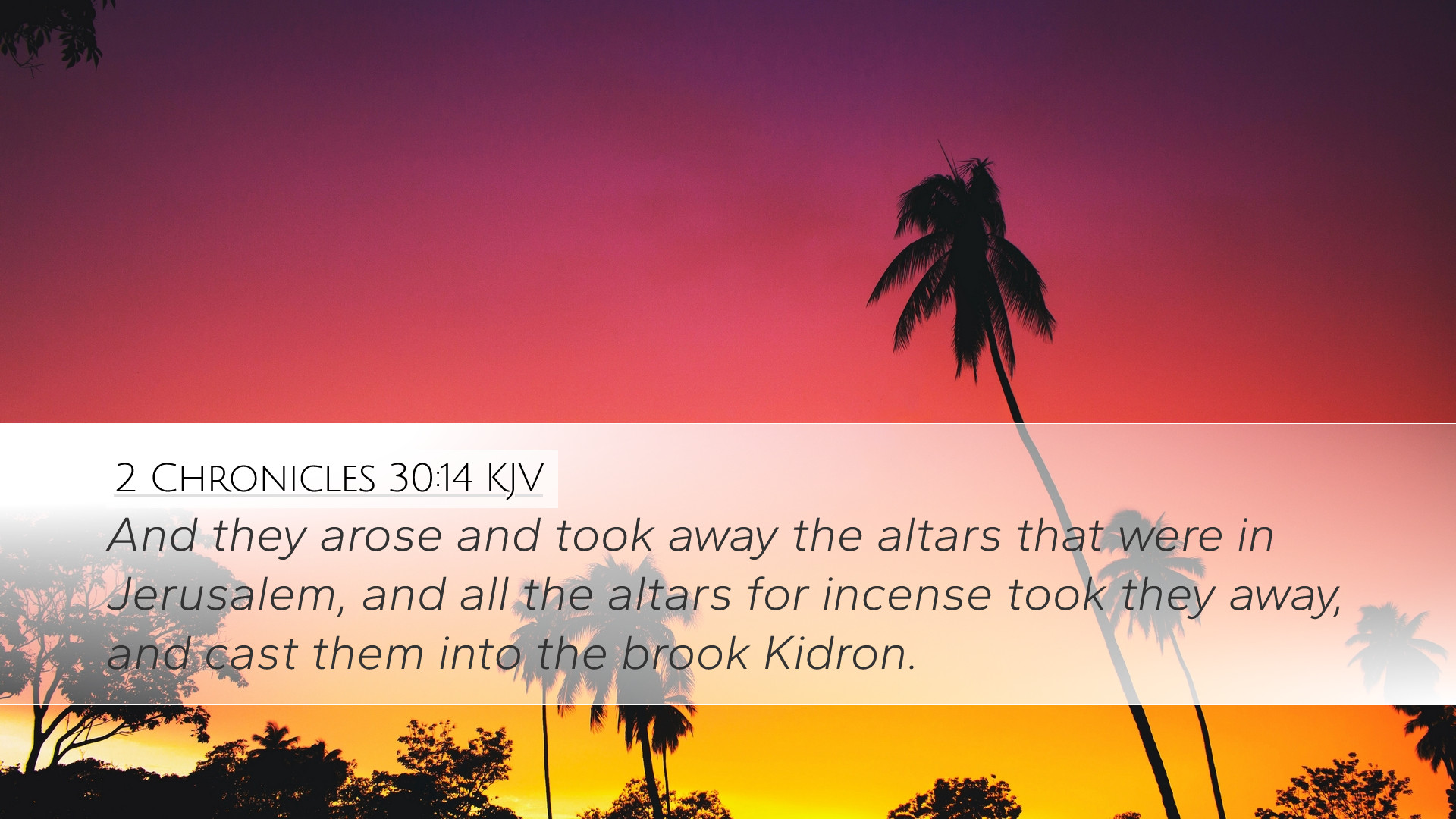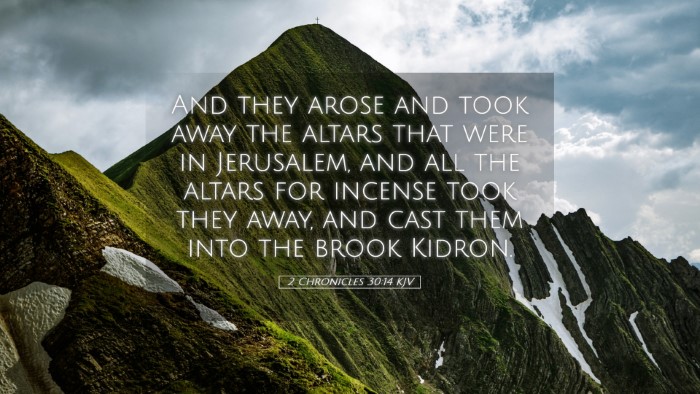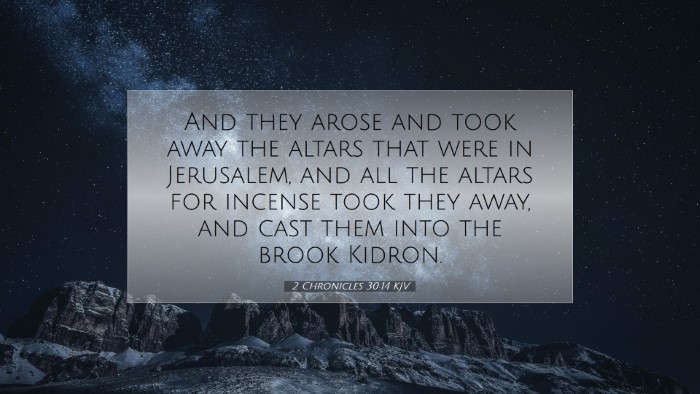Commentary on 2 Chronicles 30:14
In 2 Chronicles 30:14, we find a significant moment in the history of Israel when the people gathered to celebrate the Passover. This verse states:
"And they arose and took away the altars that were in Jerusalem; and all the altars for incense took they away, and cast them into the brook Kidron."
Contextual Overview
This event occurs during King Hezekiah's reign, which is noted for a religious revival and reform. After a period of decline in worship practices and the establishment of idolatrous altars by previous kings, Hezekiah's actions focused on restoring true worship of Yahweh.
The Importance of Cleansing
The act of cleansing Jerusalem of idols and false altars symbolizes a return to covenantal faithfulness. The verse highlights several important themes evident in the commentaries of Matthew Henry, Albert Barnes, and Adam Clarke.
1. Eradication of Idolatry
Following Matthew Henry's insights, this removal of altars signifies a decisive stance against idolatry. He emphasizes that true repentance involves not merely confession but tangible actions against sin.
2. The Role of Leadership
Albert Barnes remarks on King Hezekiah's leadership as pivotal in reinstituting correct worship. He notes the importance of godly leaders in guiding their people back to faithfulness—this restoration did not happen without the king's initiative and courage.
3. The Symbolism of the Brook Kidron
Adam Clarke draws attention to the brook Kidron as a place of disposal for these altars. He interprets this act as a symbolic gesture of casting away sin and iniquity, akin to the New Testament concept of being "washed clean" through Christ.
Spiritual Implications
The act of removing the altars serves as a metaphor for personal and communal spiritual renewal. The idea of casting away idols applies not only to physical altars but also to spiritual strongholds in individual lives.
1. The Need for Personal Cleansing
Every believer is called to examine their hearts and lives, identifying and removing anything that stands against the worship of God. Just as the people of Israel took action, modern believers are invited to engage in self-reflection and cleansing.
2. A Call to Collective Action
This passage also addresses community responsibility. In light of Hezekiah’s reforms, congregations today must consider how their corporate practices might reflect idolatry or divestment from pure worship.
Practical Applications for Pastors and Scholars
For pastors, the lessons from 2 Chronicles 30:14 invite a deeper engagement with congregational identity and worship purity. The following applications emerge:
- Encouraging a Culture of Repentance: Foster environments where repentance and cleansing are central to community life.
- Teaching on Idolatry: Address contemporary forms of idolatry that distract from the worship of God, encouraging congregants to identify and remove these barriers.
- Leadership Integrity: Leaders should exemplify and champion the need for spiritual renewal, capturing the essence of Hezekiah’s bold actions.
Conclusion
The compelling narrative of 2 Chronicles 30:14 enlightens our understanding of the necessity of purity in worship. The commitment to remove altars and return to God constitutes a powerful lesson for individuals and communities seeking genuine encounters with the Divine.
As we reflect on this Scripture, may we too seek to remove every distraction and false god in our lives, embodying a faith that is sincerely devoted to the worship of the one true God.


